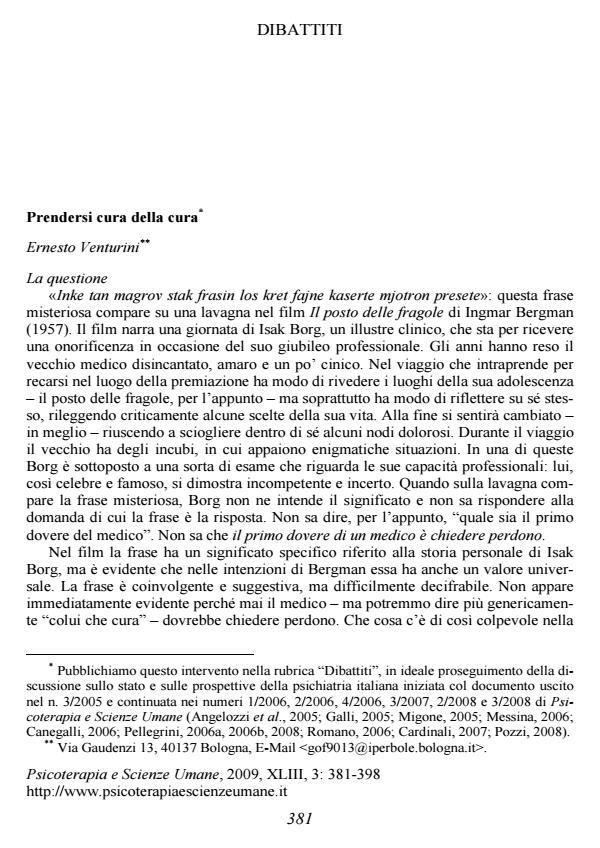Prendersi cura della cura
Titolo Rivista PSICOTERAPIA E SCIENZE UMANE
Autori/Curatori Ernesto Venturini
Anno di pubblicazione 2009 Fascicolo 2009/3
Lingua Italiano Numero pagine 18 P. 381-398 Dimensione file 104 KB
DOI 10.3280/PU2009-003006
Il DOI è il codice a barre della proprietà intellettuale: per saperne di più
clicca qui
Qui sotto puoi vedere in anteprima la prima pagina di questo articolo.
Se questo articolo ti interessa, lo puoi acquistare (e scaricare in formato pdf) seguendo le facili indicazioni per acquistare il download credit. Acquista Download Credits per scaricare questo Articolo in formato PDF

FrancoAngeli è membro della Publishers International Linking Association, Inc (PILA), associazione indipendente e non profit per facilitare (attraverso i servizi tecnologici implementati da CrossRef.org) l’accesso degli studiosi ai contenuti digitali nelle pubblicazioni professionali e scientifiche.
Taking care of of care - The meaning of "cure" in medicine is examined, also in order to understand how in western civilization such a concept is historically determined. Two important aspects emerge. "To cure" means both to treat and to take care of, to look after someone. These two terms are intertwined, and their values and shortcomings are highlighted. There are contradictions in these two models both in medicine and in psychiatry, but a solution is found when the patient is the protagonist of treatment. Recovery represents the fundamental innovation, in that it helps the doctor in charge to re-examine and question his/her role in the relationship with the patient. This age of technology reduces the medical act into a simple service. Health care professionals should pay more attention to the moral principles involved in their work. This is particularly true in psychiatry, since real recovery occurs if a change comes about also in those responsible for treatment.
KEY WORDS: recovery, cure, care, psychotherapeutic relationship, empowerment
- Dibattiti Pietro Pellegrini, Euro Pozzi, in PSICOTERAPIA E SCIENZE UMANE 4/2013 pp.657
DOI: 10.3280/PU2013-004005
Ernesto Venturini, Prendersi cura della cura in "PSICOTERAPIA E SCIENZE UMANE" 3/2009, pp 381-398, DOI: 10.3280/PU2009-003006